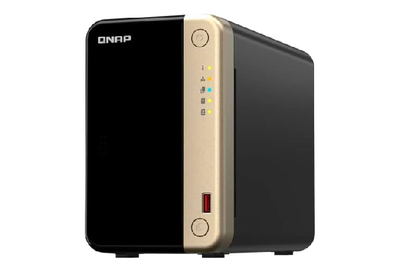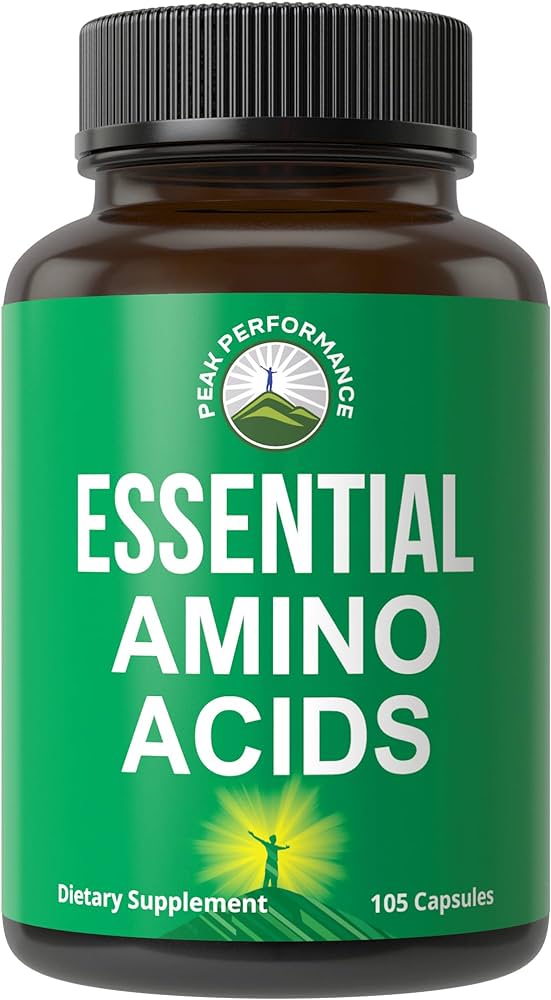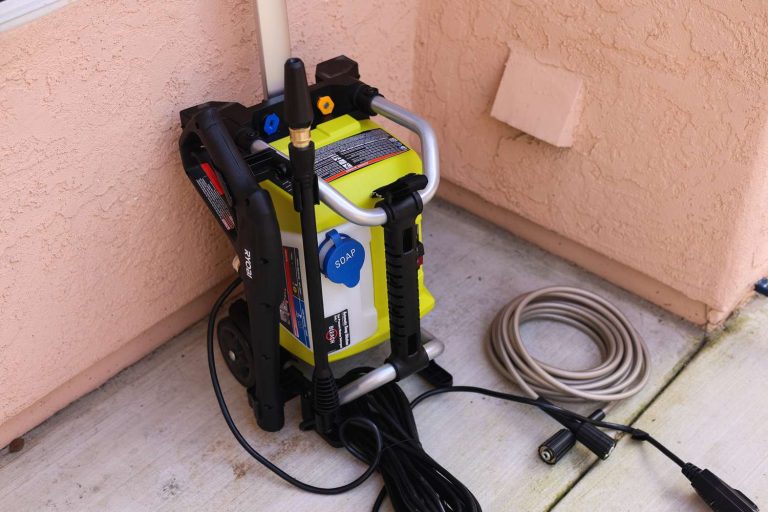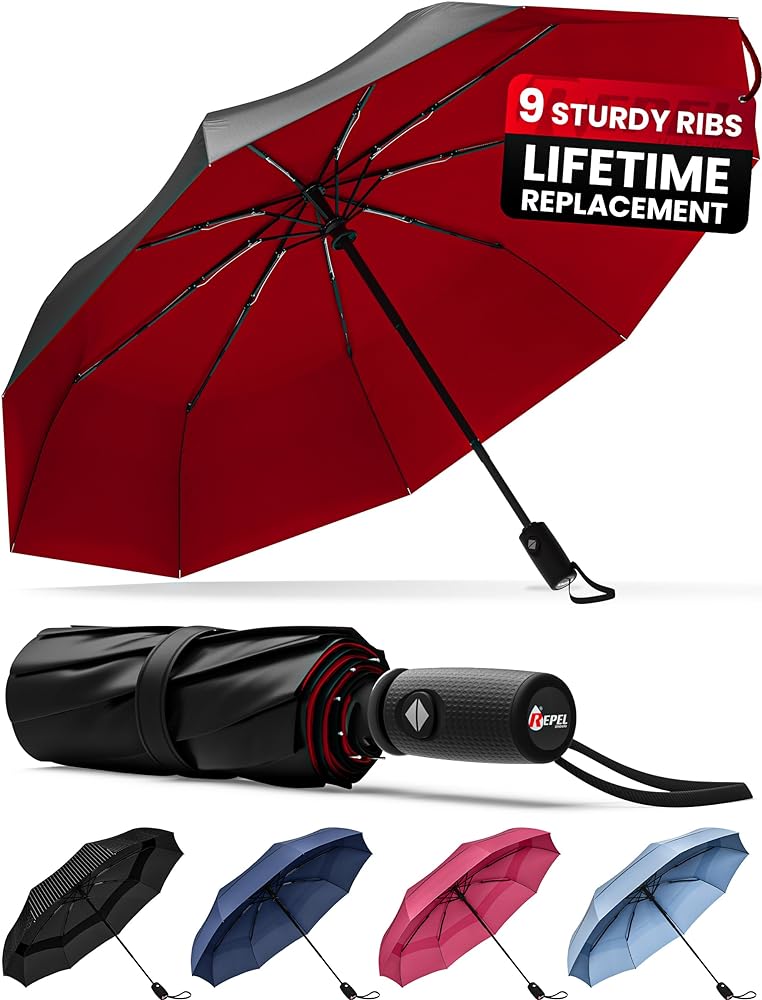9 Best Home NAS Devices for 2024: Top Picks for Performance and Storage
In today’s digital age, managing your growing collection of files, photos, and videos can feel overwhelming. A Network Attached Storage (NAS) device offers a convenient and secure way to store, access, and share your data from anywhere. Whether you’re a tech enthusiast or just looking for a reliable storage solution, finding the right home NAS can make a world of difference.
We’ve curated a list of the 9 best home NAS devices to help you make an informed decision. These options cater to various needs, from simple backups to more advanced media streaming and file sharing capabilities. Dive in to discover which NAS device suits your home setup and keeps your data safe and accessible.
Choosing the Right NAS for Your Home
Selecting the right NAS for your home demands careful consideration of various factors. Below are key elements you should assess.
Consideration of Storage Needs
Identify your storage requirements based on current and future data. Consider the types of files you’ll be storing, such as high-resolution photos, videos, and documents. If you’re a media enthusiast with extensive digital libraries, you’ll need more capacity compared to casual users. Pay attention to the number of drive bays a NAS offers, as more bays mean greater storage potential.
Importance of Scalability and Flexibility
Ensure the NAS can grow with your needs. A scalable NAS allows you to add more drives or upgrade existing ones without hassle. Look for devices supporting various RAID configurations, enhancing data protection and performance. Flexibility is equally vital; a good NAS should support multiple operating systems and offer a range of apps for functions like media streaming, file synchronization, and backups. Consider future-proofing options, such as compatibility with higher-capacity drives.
The First Best Home NAS: Synology DiskStation DS220+
The Synology DiskStation DS220+ stands out as an excellent choice for your home NAS needs. It offers a blend of powerful features and user-friendly design, making it ideal for both novices and tech enthusiasts.
Key Features and Specifications
- Processor: The DS220+ features an Intel Celeron J4025 dual-core 2.0 GHz processor, ensuring smooth performance for multiple tasks.
- RAM: Equipped with 2GB DDR4 RAM, upgradeable to 6GB, providing flexibility for heavier workloads.
- Storage: Supports up to two 3.5″ or 2.5″ SATA HDD/SSD, allowing a maximum raw storage capacity of 32TB.
- File System: Uses the Btrfs file system, offering advanced data integrity and efficient snapshot technology.
- Connectivity: Includes two Gigabit Ethernet ports with Link Aggregation and Failover support, ensuring reliable network connectivity.
- Software: Runs Synology’s DiskStation Manager (DSM) software, featuring an intuitive GUI, robust data management tools, and extensive app support.
- Pros:
- Easy Setup: The DS220+ offers a simple and straightforward setup process, perfect for non-tech savvy users.
- Scalability: Supports up to 32TB, allowing you to expand storage as your needs grow.
- Performance: Great for media streaming, backups, and file sharing thanks to its efficient CPU and RAM.
- Synology DSM: Provides access to a broad range of applications like Plex, Docker, and more.
- Cons:
- Price: Higher initial investment compared to basic NAS models, but offers enhanced features.
- Limited Bays: Limited to two bays, which might not be enough for users requiring larger storage expansion.
The Second Best Home NAS: Asustor AS4002T
The Asustor AS4002T ranks highly due to its strong performance and great value. Let’s dive into its key features and weigh the pros and cons.
Key Features and Specifications
Handles Data Storage: The AS4002T is equipped with a dual-core Marvell ARMADA-7020 processor that clocks at 1.6 GHz. This ensures smooth performance for everyday tasks.
Expands Quickly: It features 2GB of DDR4 RAM, which can be increased to 8GB, making it adaptable to your storage needs.
Supports Large Storage: The NAS includes two drive bays supporting up to 32TB of total storage, catering well to those with extensive data.
Fast Network: With 2.5-Gigabit Ethernet connectivity, it promises quick data transfers, an upgrade over standard Gigabit connections. It also includes Link Aggregation, which boosts network performance.
Easy Management: The Asustor Data Master OS (ADM) is user-friendly, providing essential apps and easy management features.
Enhances Security: Equipped with AES-256 encryption, it ensures your data is protected.
Pros and Cons
Pros:
- Delivers Swift Performance: Thanks to its powerful processor and 2.5-Gigabit Ethernet, data transfers are speedy.
- Offers Flexibility: Expandable RAM and storage options make it future-proof.
- Enhances Security: AES-256 encryption keeps your data safe.
- Provides User-friendly Interface: The ADM system offers smooth and intuitive management.
Cons:
- Limits Expandability: With only two drive bays, it may not be ideal for large-scale storage needs.
- Lacks Advanced Features: While offering essential apps, it doesn’t support some advanced functionalities found in higher-end models.
The Asustor AS4002T is an excellent all-around NAS with strong performance and good value, making it a worthy contender for the best home NAS.
The Third Best Home NAS: QNAP TS-251B-4G
Key Features and Specifications
The QNAP TS-251B-4G offers a mix of power and flexibility for your home storage needs. Featuring an Intel Celeron J3355 dual-core processor and 4GB DDR3L RAM, this device ensures smooth and efficient performance. It comes with two drive bays supporting up to 32TB of storage, giving you ample space for your files, media, and backups. Additionally, it includes 4K video transcoding, making it ideal for streaming high-resolution content across your devices.
Pros and Cons
The QNAP TS-251B-4G excels in several areas. Its Intel Celeron processor delivers robust performance for everyday tasks. The 4K video transcoding feature enhances media streaming, providing a seamless viewing experience. Its QTS operating system offers an intuitive interface and a range of apps for customization.
However, there are a few limitations. The inclusion of only two drive bays limits expandability. Additionally, while the device supports 4GB RAM, more memory would significantly improve performance for heavier tasks. Despite these cons, the QNAP TS-251B-4G remains a strong contender in the home NAS market, particularly for users seeking a balance of performance and media capabilities.
The Fourth Best Home NAS: TerraMaster F2-221
The TerraMaster F2-221 stands out as a reliable and cost-effective option for home NAS users. Its robust hardware and advanced features ensure your data is secure and easily accessible.
Key Features and Specifications
The TerraMaster F2-221 comes with an Intel Celeron J3355 dual-core processor and 2GB of DDR3 memory, expandable up to 4GB. It supports two drive bays, allowing up to 32TB of storage. The NAS operates on the TOS (TerraMaster Operating System), providing an intuitive user experience. Dual Gigabit Ethernet ports ensure fast data transfer, and built-in hardware encryption accelerates performance while keeping your data safe. The device supports a variety of RAID configurations, such as RAID 0, RAID 1, JBOD, and Single, catering to different storage needs.
Pros and Cons
Pros
- Powerful Processor: The Intel Celeron J3355 ensures smooth operation and efficiency.
- Expandable Memory: You can upgrade the RAM from 2GB to 4GB.
- Dual Gigabit Ethernet: Provides fast and reliable network connectivity.
- User-Friendly OS: TOS makes it easy to manage your NAS.
- Multiple RAID Options: Supports RAID 0, RAID 1, JBOD, and Single.
- Upgrade Limitations: Maximum RAM is only expandable to 4GB.
- Limited Drive Bays: Only two bays restrict future expansion.
- Learning Curve: TOS may require some time to get used to for new users.
These features and considerations make the TerraMaster F2-221 a solid choice for home NAS users seeking a blend of performance, affordability, and security.
The Fifth Best Home NAS: Western Digital My Cloud EX2 Ultra
Western Digital’s My Cloud EX2 Ultra is a solid choice for your home NAS needs, offering a blend of performance and reliability that suits various requirements.
Key Features and Specifications
- Processor: Powered by a Marvell ARMADA 385 1.3GHz dual-core processor, ensuring efficient data handling.
- Memory: Equipped with 1GB of DDR3 RAM for smooth operations.
- Storage: Features two drive bays supporting up to 20TB, allowing significant storage capacity.
- OS: Runs on the My Cloud OS 3 for user-friendly operation and advanced features.
- Connectivity: Includes dual Gigabit Ethernet ports and a USB 3.0 port for fast data transfers.
- Compatibility: Supports various RAID configurations, including RAID 0, 1, JBOD, and spanning.
- Cloud Access: Provides seamless access to your files from anywhere with cloud integration.
- Pros:
- User-Friendly Interface: My Cloud OS 3 offers an intuitive, easy-to-navigate interface.
- Good Performance: Dual-core processor and Gigabit ports ensure fast data access and transfer speeds.
- Cloud Features: Built-in cloud access lets you manage your files from anywhere, enhancing flexibility.
- Versatile RAID Options: Supports multiple RAID configurations, giving you data security and storage options.
- Cons:
- Limited Memory: 1GB of RAM might not suffice for heavy multi-user environments or advanced applications.
- Drive Bay Limitation: With only two drive bays, future storage expansion could be restricted.
Western Digital My Cloud EX2 Ultra stands out for its user-friendly design and robust cloud integration, though it faces some constraints in memory and expandability.
The Sixth Best Home NAS: Synology DiskStation DS918+
Offering a blend of performance and expandability, the Synology DiskStation DS918+ ranks as your sixth best home NAS. This device is ideal for both beginners and advanced users looking to streamline their data management.
Key Features and Specifications
Boasting an Intel Celeron J3455 quad-core processor, the DS918+ delivers robust performance. It comes with 4GB of DDR3L RAM, expandable up to 8GB. The four drive bays support up to 64TB, making massive storage easily accessible. Equipped with dual M.2 NVMe SSD slots for cache acceleration, the DS918+ speeds up read/write operations significantly. Running on DSM, Synology’s intuitive OS, it sports dual Gigabit Ethernet ports and three USB 3.0 ports for versatile connectivity.
Pros and Cons
Pros:
- Includes powerful processor for smooth multitasking and file transfers.
- Features expandable RAM, catering to higher memory demands.
- Supports M.2 NVMe SSD slots for superior cache acceleration.
- Provides reliable DSM OS, known for its user-friendly interface and robust features.
- Offers four drive bays, facilitating substantial storage capacity.
- Requires investment in additional SSDs for optimal cache acceleration.
- Has a relatively higher price point compared to other home NAS options.
- Limited number of drive bays may restrict future storage expansion.
The Synology DiskStation DS918+ stands out for its performance, expandability, and user-centric design, making it an exceptional choice for home users in need of a powerful NAS solution.
The Seventh Best Home NAS: QNAP TS-453D
The QNAP TS-453D ranks as the seventh best home NAS for its balance of performance, flexibility, and user-friendly features. It’s ideal for households needing robust data management and high-speed connectivity.
Key Features and Specifications
- Processor: The TS-453D is powered by an Intel Celeron J4125 quad-core processor running at 2.0GHz (burst up to 2.7GHz), offering excellent performance for multitasking and data-heavy applications.
- Memory: It comes equipped with 4GB DDR4 RAM, expandable up to 8GB, ensuring smooth operation even under heavy loads.
- Drive Bays: Four hot-swappable 3.5″/2.5″ SATA 6Gb/s drive bays, supporting up to 64TB of storage, making it suitable for extensive media libraries and backup solutions.
- Connectivity: Includes dual 2.5GbE ports for enhanced network performance and support for link aggregation, doubling your data transfer rates.
- Expansion: Two PCIe slots for installing QNAP expansion cards like QM2 (for additional M.2 SSD slots) or 10GbE network cards, offering great scalability.
- Multimedia: Features hardware-accelerated transcoding, supporting video playback and streaming in various formats, perfect for home entertainment systems.
- Operating System: Runs on the QTS operating system, which is intuitive and feature-rich, providing diverse apps for data management, backup, and virtualization.
Pros and Cons
Pros
- Performance: Exceptional performance with a quad-core processor and upgradable memory.
- Networking: Dual 2.5GbE ports offer fast network speeds and efficient data transfer.
- Expandability: PCIe slots allow for significant upgrades and scalability.
- Transcoding: Hardware-accelerated video transcoding supports seamless media streaming.
- User Interface: QTS provides a user-friendly interface with comprehensive functionalities.
- Price: Higher cost compared to entry-level NAS devices, which might be a drawback for budget-conscious users.
- Learning Curve: Complexity of QTS might be overwhelming for NAS beginners.
- Noise: Can be noisier under heavy operation, requiring consideration for placement in quiet environments.
The Eighth Best Home NAS: Netgear ReadyNAS RN212
The Netgear ReadyNAS RN212 is an excellent choice for home users seeking a reliable and efficient NAS solution. This device balances performance, affordability, and user-friendly features.
Key Features and Specifications
- Processor: Powered by a quad-core ARM Cortex A15 1.4GHz processor, offering solid performance.
- RAM: Equipped with 2GB of DDR3 RAM, providing enough memory for most home applications.
- Storage Capacity: Supports up to 12TB of storage with two drive bays.
- Connectivity: Features two Gigabit Ethernet ports for load balancing and failover support.
- Streaming: Supports 1080p HD streaming and transcoding for multiple devices.
- Backup Solutions: Offers automated backup options and built-in antivirus for secure data management.
- App Ecosystem: Includes a range of apps for media streaming, file sharing, and more.
Pros and Cons
Pros:
- User-Friendly: Easy setup and management with Netgear’s intuitive interface.
- Performance: Good performance for media streaming and data backups.
- Security: Includes advanced data protection features like RAID support and snapshot technology.
- Compact Design: Space-saving design fits easily into any home environment.
- Limited RAM: Only 2GB RAM, which might be insufficient for power users.
- No HDMI Port: Lacks an HDMI port, limiting direct media playback options.
- Noise Level: Can be slightly noisy under heavy load.
The Ninth Best Home NAS: Asustor AS5304T
The Asustor AS5304T shines as a top contender in the home NAS market. It’s designed for those seeking robust performance and a range of features.
Key Features and Specifications
- Processor and RAM: Powered by an Intel Celeron J4105 quad-core CPU, running at 1.5GHz (boosts up to 2.5GHz), paired with 4GB DDR4 RAM (expandable up to 8GB).
- Storage: Supports four drive bays with a max storage capacity of 64TB, using RAID configurations for enhanced data protection.
- Connectivity: Equipped with dual 2.5-Gigabit Ethernet ports, offering link aggregation to boost network speeds.
- Multimedia: HDMI 2.0a port supports 4K video output, making it perfect for direct media playback on your TV.
- Software: ADM OS ensures ease of use with a plethora of apps for media streaming, file management, and backup utilities.
- Expansion: Multiple USB 3.2 Gen 1 ports for external drives, printers, or other peripherals.
- Pros:
- Excellent performance with the quad-core Intel processor and expandable RAM.
- High storage capacity with four drive bays supporting up to 64TB.
- Dual 2.5-Gigabit Ethernet ports for faster data transfer and network resilience.
- HDMI 2.0a port for direct 4K video playback.
- Extensive app ecosystem via the ADM OS.
- Cons:
- Price may be higher compared to other NAS devices in its class.
- Noise levels can increase under heavy operation.
- Initial setup might be complex for novice users.
The Asustor AS5304T is an excellent choice if you need a versatile and powerful home NAS solution with advanced features and high-performance capabilities.
Conclusion: Selecting the Best NAS for Your Home Needs
Choosing the right NAS for your home can significantly enhance your data management and media streaming experience. Whether you prioritize performance, storage capacity, or ease of use, there’s a NAS on the list that suits your needs.
The Netgear ReadyNAS RN212 stands out for its balance of affordability and features, making it an excellent choice for budget-conscious users. On the other hand, the Asustor AS5304T offers robust performance and extensive storage options, though it may require a bit more investment and setup effort.
Evaluate your specific requirements and budget to make an informed decision. Investing in a quality NAS will provide long-term benefits, ensuring your data is secure and easily accessible.






